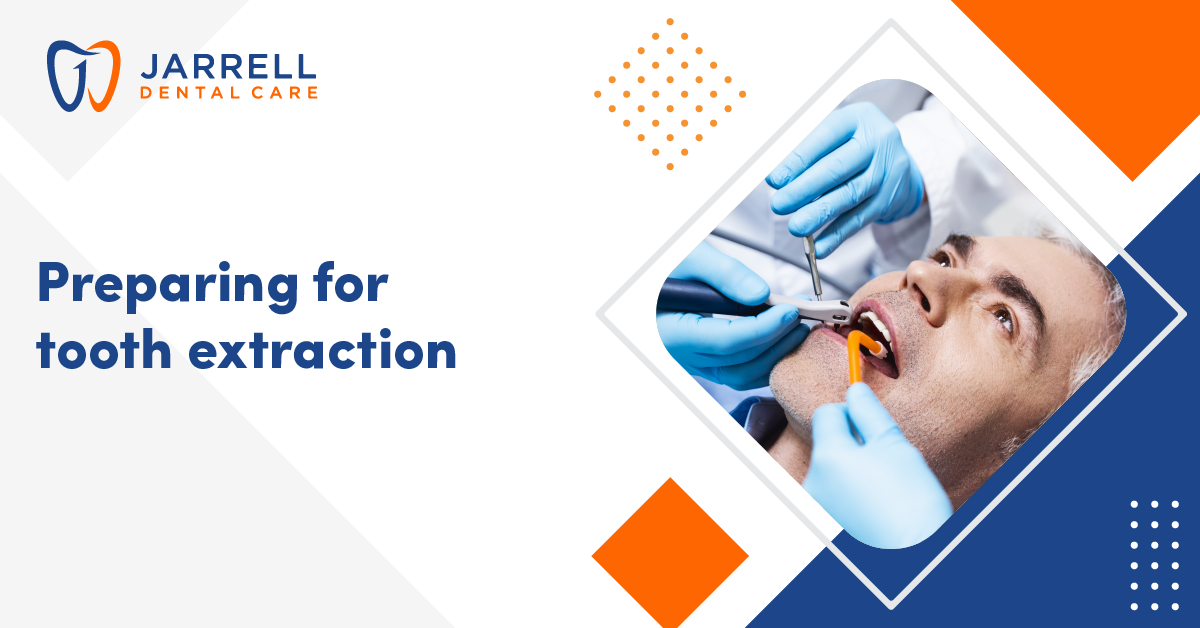Adult tooth loss comes with many complications. A tooth extraction can be stressful, but it is made easier if you are completely prepared for the surgery ahead of time. There are certain critical steps to take in preparation for this treatment.
Clear Away Your Doubts about Tooth Extraction
If you have doubts about tooth extraction, clear them away with your dentist! This is your time to ensure that you thoroughly comprehend the tooth extraction procedure. It is your right to be informed about every aspect of the treatment.
Give Your Complete Medical History
It is critical to discuss your medical history prior to the treatment. You must be thorough and not leave any facts out.
Some specifics that must be disclosed are as follows:
- Any cardiac problems, including congenital ones
- Diabetes
- Allergies
- Liver problems
- Artificial joint replacements
- Immune system malfunction
These diseases can make a patient more susceptible to infections.
It is also critical to give a thorough list of current medications so that the dental provider can prevent any potential drug interactions. If you take blood thinners, your dentist may advise you to cease taking them before the consultation. This will reduce the possibility of bleeding during the surgery. Blood thinners might also delay healing when treatment is ended.
Anesthesia and analgesics
You will almost certainly be sedated or anesthetized during your tooth extraction. It is critical to discuss which substances will be employed for your specific treatment.
Painkillers are frequently provided as part of the post-operative process. Inform your dentist of any painkiller preferences. Because painkillers might become addictive, we recommend transitioning to non-narcotic medicines as soon as feasible.
No Eating Before Surgery
In general, you should fast for 12 hours before the surgery. This can help avoid nausea during and after the treatment. If you are getting a local anaesthetic, you may not need to fast as long, so make sure to ask before the treatment. Inform your dentist if you have a medical condition that prevents you from fasting, such as diabetes.
No Smoking Before & After Surgery
It is also vital to remember that you cannot smoke for 12 hours before the procedure and for 24 hours afterward. In fact, this might be an excellent moment to quit smoking for good. Smoking after the treatment will impede the healing process and put you at risk for “dry socket,” a dangerous disease that requires rapid medical attention.
You can also read : What Family Dentists Do and Where to a Family Dental Practice?
Prepare for Your Insurance for Tooth Extraction
The best time to completely grasp your insurance is before the operation. You should check with your insurance carrier to ensure that they will cover the work that will be done. When you are recovering, the last thing you want to deal with is insurance claims and unexpected expenditures that you must pay. If necessary, you should get a written explanation of the procedure as well as ICD-10 codes to check with your insurance carrier that your treatment will be reimbursed.
Organise Transportation and Care
You should not drive after surgery. It’s shocking how many individuals expect to get in their cars and drive themselves home after receiving anaesthesia. Even local anaesthesia will affect your reflexes. Under no circumstances will you be permitted to drive while impaired!
It is critical to plan for a friend or family member to drive you home when the surgery is completed.
Consider taking some time off work, arranging daycare, and having someone stay with you overnight. We also recommend having some soft foods prepared, so you don’t have to worry about cooking.
What to Wear
It is critical that you dress comfortably for your operation. Clothing that is loose-fitting and comfortable is ideal.
Most dentists advise wearing something old. Despite the best efforts of doctors and employees, clothing might become soiled.
Home Care After Having a Tooth Pulle
After the tooth extraction surgery is completed, your dentist will advise you to eat soft meals so that you do not have to chew or bite anything hard. You may find it difficult to feel your mouth and cheeks until the anesthesia wears off. You should avoid drinking through straws, washing your mouth, and spitting forcibly.
Not only that, but you should also rest for one to two days after the surgery. Keep your head propped up on a pillow when you lie down. You should avoid brushing the extraction site and take pain relievers as advised by your dental professional.
Expect considerable edema, but contact your doctor immediately if you observe any of the following symptoms:
- Shortness of breath or chest pain
- Severe bleeding or swelling
- Fever or chills
- Nausea or vomiting
These are all symptoms of an infection that must be addressed right away.
Conclusion
We recognize that most people are fearful of having their teeth extracted. It is crucial to trust competent dental practitioners at Jarrell Dental Care since we fully understand what is involved in removing teeth in a safe and efficient manner. We are here to ensure that you have the best, delightful experience possible and will guide you every step of the way. If you have any questions concerning tooth extractions or would like to schedule a consultation, please contact our practice.


